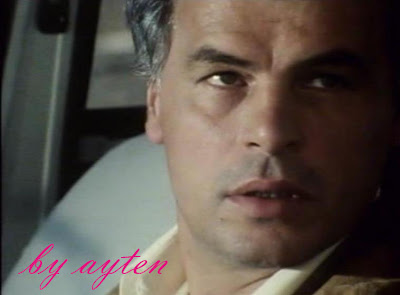Michele Placido is an internationally known Italian actor and director.FilmographyEstrenando sueГ±os (2005)
LiolГ (2005)
Il Grande Torino (2004)
L'Odore del sangue (2004)
L'Amore ritorna (2004)
Soraya (2003)
Un PapГ quasi perfetto (2003)
Il Posto dell'anima (2003)
Searching for Paradise (2002)
Il Sequestro Soffiantini (2002)
Tra due mondi (2001)
Padre Pio - Tra cielo e terra (2000) (TV)
Liberate i pesci! (2000)
Terra bruciata (1999)
Un Uomo perbene (1999)
La Balia (1999)
Panni sporchi (1999)
Del perduto amore (1998)
La Missione (1998)
Le Plaisir (et ses petits tracas) (1998)
Racket (1997)
La Lupa (1996)
Un Eroe borghese (1995)
Padre e figlio (1994)
Poliziotti (1994)
Lamerica (1994)
Quattro bravi ragazzi (1993)
Le Amiche del cuore (1992)
Uomo di rispetto (1992)
Drug Wars: The Cocaine Cartel (1992)
Scoop (1991)
Afganskiy izlom (1990)
La Piovra 4 (1989)
Mery per sempre (1989)
Via Paradiso (1988)
Big Business (1988)
Come sono buoni i bianchi (1988)
La Piovra 3 (1987)
Ti presento un'amica (1987)
Grandi magazzini (1986)
Notte d'estate con profilo greco, occhi a mandorla e odore di basilico (1986)
La Piovra 2 (1985)
Pizza Connection (1985)
Les Amants terribles (1984)
La Piovra (1984)
Ars amandi
SciopГЁn (1982)
Cargo (movie) (1981)
Tre fratelli (1981)
Les Ailes de la colombe (1981)
Lulu (1980)
Salto nel vuoto (1980)
Letti selvaggi (1979)
Il Prato (1979)
Sabato, domenica e venerdì (1979)
Ernesto (1979)
Un Uomo in ginocchio (1978)
Io sono mia (1978)
Corleone (1977)
Fontamara (1977)
Kleinhoff Hotel (1977)
La Ragazza dal pigiama giallo (1977)
Casotto (1977)
L'Agnese va a morire (1976)
La Orca (1976)
Divina creatura (1976)
Marcia trionfale (1976)
Peccati in famiglia (1975)
Moses the Lawgiver (1975)
Orlando Furioso (movie) (1975)
Mio Dio come sono caduta in basso! (1974)
Processo per direttissima (1974)
Romanzo popolare (1974)
Il Picciotto (1973)
La Mano nera - prima della mafia, piГ№ della mafia (1973)
Mia moglie, un corpo per l'amore (1973)
Teresa la ladra (1972)
Il Caso Pisciotta (1972)
As Director
Romanzo criminale (2005)
Ovunque sei (2004)
Un Viaggio chiamato amore (2002)
Un Altro mondo ГЁ possibile (2001)
Del perduto amore (1998)
Un Eroe borghese (1995)
Le Amiche del cuore (1992)
PummarГІ (1990)

 La Piovra with Michele Placido on RAI EDU 2 !
La Piovra with Michele Placido on RAI EDU 2 !















